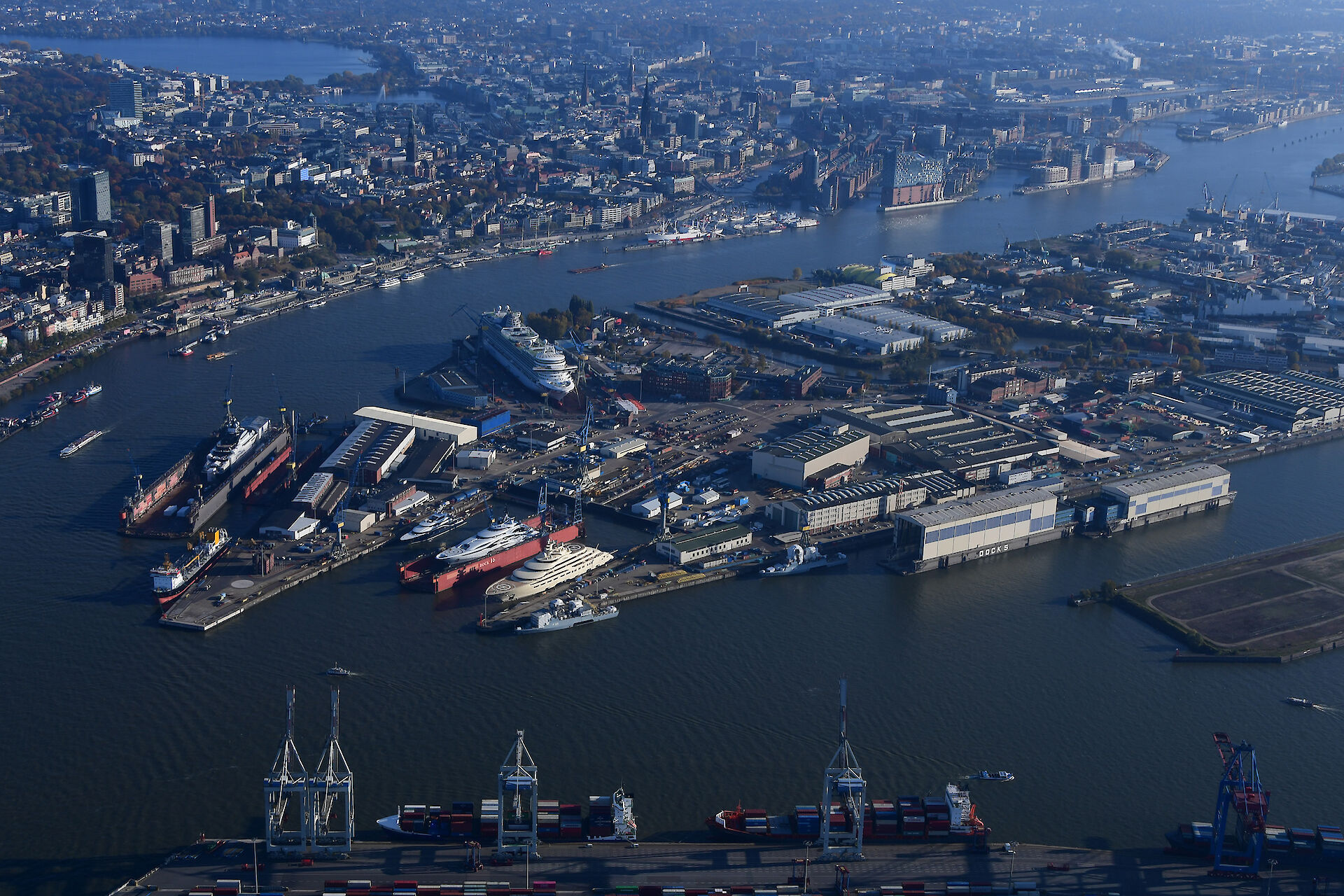

11 Sep 2023 11:30 Economy
In the run-up to the National Maritime Conference, the port industry and the Ministers of Economics and Transport of the coastal states are calling on the federal government to increase the funding for seaports, which has remained unchanged for more than 20 years.
The President of the Central Association of German Seaport Operators (ZDS) Angela Titzrath explains:
"The importance of seaports for security of supply, jobs and the energy transition for Germany and beyond is undisputed. It is logical that the German government has set itself the goal of greater federal involvement in the coalition agreement, as has long been standard practice in our neighboring countries. However, the National Ports Strategy does not threaten to do justice to this. As a port industry, we are dependent on infrastructure that meets our needs, firstly in terms of transport routes, but above all in terms of ports. The increase in federal funding for ports demanded by the federal states is rather modest in view of the immense need for investment. Even this minimum target, however, is in danger of being missed and is not reflected in any way in the federal budget for the coming year. We as the port industry expect three things: massive investment in the future of transport and port infrastructure, financial support for the transformation processes of the energy transition and the world of work, and a clear commitment from the federal government to actively create framework conditions for market and technology leadership in Germany as a port location."
Bremen Declaration:
Coastal states and port industry call for turnaround in seaport financing:
In the run-up to the National Maritime Conference, the Ministers of Economics and Transport of the coastal states and representatives of the German seaport industry are calling on the federal government to make a relevant increase in the funding for seaports, which has remained unchanged in total for more than 20 years.
The coastal states and the port industry perform tasks in the seaports in the interest of the entire German economy and also have a major European significance. 300 million tons of goods pass through the seaports of the coastal states every year. This is associated with 1.3 million jobs in Germany. Strengthening the German seaports not only secures the supply of goods to the economy and population in Germany and surrounding regions in Northern, Central and Eastern Europe. The seaports, the logistics in the hinterland and the port-dependent industry also keep jobs and value creation in Germany.Without massive investment in the infrastructures in the seaports and in hinterland transport, there is a threat of a continuing loss of importance of German locations despite their distance advantages and their high share of climate-friendly rail transport in the inflow and outflow of international goods traffic.
The current political situation shows how indispensable seaports are for supplying industry and the population with energy, but also with other vital goods. The transformation of the economy in the context of the energy transition in particular will only succeed with functioning seaports.The seaports themselves are also in the process of transformation, for example via requirements due to automation, the current projects for the provision of shore power for shipping and in the course of the energy transition as a whole.Finally, seaports are also extremely important in terms of security policy, not least for smooth cooperation with Germany's allies.Until now, the coastal countries have had to finance most of the costs of the port infrastructures required for this themselves.
Inflation and the omnipresent increases in construction costs alone would require at least a tenfold increase in funding. Added to this are the costs of necessary investments in construction, replacement and modernization, which are required to ensure security of supply in the face of a changed world situation.Massive investment is also needed in road, rail and federal waterway links to seaports.Here, Germany needs modern, high-performance logistics corridors for all modes of transport. The development of our seaports must be seen as a joint task for the whole of Germany and must finally be given top priority.
The coastal states and the seaport companies expect the federal government to turn the tide with the National Maritime Conference in Bremen. The federal government must make it clear that massive investments must be made in German seaports, which are the basis for all of our prosperity, climate policy goals and security.The coastal states therefore also expect that the National Ports Strategy announced by the federal government before the end of this year will not only contain sweeping declarations about the importance of seaports, but also concrete statements about a roadmap for appropriate and urgently needed new funding "2.0" for the continuous maintenance, expansion and adaptation of seaport infrastructure.
Background:
The Central Association of German Seaport Operators (Zentralverband der deutschen Seehafenbetriebe e. V., ZDS) is the federal association of the 150 companies involved in seaborne cargo handling in the ports of Bremen, Hamburg, Mecklenburg-Western Pomerania, Lower Saxony and Schleswig-Holstein. The ZDS represents the common economic, trade, social and collective bargaining interests of the companies.
Port industry and coastal states publish "Bremen Declaration" ahead of Maritime Conference
Leonard Kuntscher
Phone: +49 40 88 365 78 78
Mail: leonard.kuntscher@zds-seehaefen.de